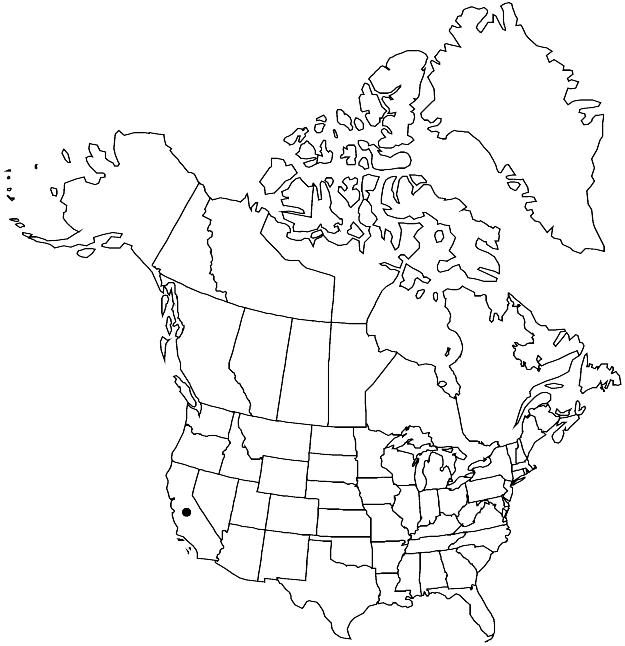Orthotrichum norrisii
Bryologist 111: 670, figs. 1 – 12. 2008.
Plants to 1.5 cm. Stem leaves stiff, erect-appressed when dry, narrowly lanceolate to lanceolate-ligulate, 1.3–3 mm; margins recurved, becoming incurved or plane at apex, entire; apex narrowly obtuse, acute to notched and channeled; basal laminal cells rectangular, occasionally polygonal, walls thin to occasionally thick, rarely nodose; distal cells 10–16 µm, 1-stratose, papillae 2 or 3 per cell, simple, low. Specialized asexual reproduction sometimes present by gemmae on leaves. Sexual condition gonioautoicous. Vaginula with hairs present. Seta 0.5–1 mm. Capsule emergent, cylindric when dry, 1.5–2 mm, slightly 8-ribbed entire length, ribs thin, delicate when dry, constricted below mouth when dry; stomata immersed, 1/2 to completely covered by subsidiary cells, cells projecting, inner walls thickened; peristome double; prostome absent; exostome teeth 8, reflexed, finely papillose; endostome segments 8, well developed, of 1 (or 2) rows of cells, smooth to faintly papillose. Calyptra oblong-conic, smooth, hairy distally, hairs smooth. Spores 14–18 µm.
Habitat: Epiphytic in woodlands and chaparral
Elevation: moderate elevations (200-900 m)
Discussion
Of conservation concern.
Orthotrichum norrisii is somewhat similar to O. tenellum, both species having a well-developed peristome of eight reflexed exostome teeth and eight long-lasting endostome segments. Also, both species occur on tree trunks in Mediterranean-like climates of California. Orthotrichum norrisii differs in having some leaves with irregular, channeled apices (versus mostly obtuse in O. tenellum) and slightly ribbed capsules (compared to thick, broad ribs in O. tenellum). The stomata are found in the proximal third of the capsule.
Selected References
None.
